Last updated on July 12, 2021
With the pandemic still impacting many consumer decisions, Caddle wonders if Canadians’ beauty routines are being neglected.
How frequently do you wear makeup?
Surprisingly, for the cosmetics aisle, Caddle found out that 66% of consumers are still wearing makeup at least a few times a week.
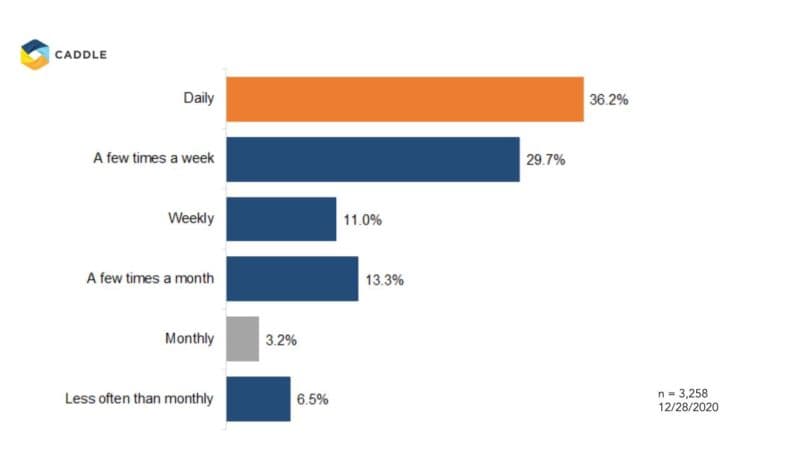
How likely are you to try different makeup brands?
While this is good news for cosmetic brands, there are some bad news as well. Brand loyalty is low as 76% of consumers are likely to try different makeup brands.
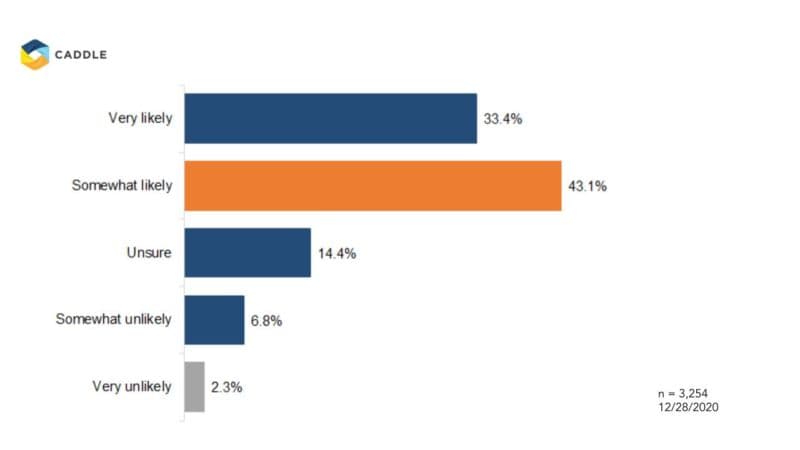
With this in mind, how can beauty brands catch the Canadian consumers’ eye among the cosmetic aisle? Could vegan cosmetics be the answer?
Since 2020,
Caddle discovered there has been heightened awareness of personal health and wellbeing, prompting better exercise and dietary choices among Canadians.
Veganuary has inspired and supported more than one million people in 192 countries to try vegan for January – and beyond. Since its launch in 2014, the number of people taking part has risen dramatically year on year. In 2021,a record-breaking 582,538 people around the world pledged to eat only vegan food in January. With demand for plant-based foods on the rise, is this trend of veganism seeping into other consumer product categories beyond food?
According to Statista, the global vegan cosmetics market is projected to grow 6.3 percent a year, reaching $26.4 billion CAD ($20.8 billion USD) by 2025.>
Specifically in Canada, the cosmetics market is projected to reach revenue of $2 billion CAD ($1.6 billion USD) by 2025.
Is this trend towards vegan diets translating to other product categories too? Are consumers choosing vegan beauty products? Caddle examines the clean beauty industry and wonders if a new year means more consumer demand for cruelty-free/vegan products.
When choosing makeup products which of the following factors is most important?
Caddle dug into what consumers consider when purchasing makeup products, and discovered that quality and price are the top two factors.
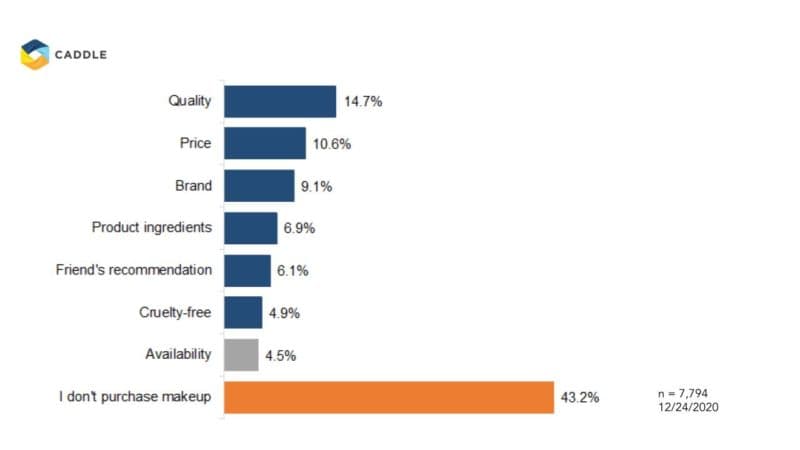
Cruelty-free labelled products come second to last in consideration, suggesting that although veganism as a diet is on the rise, vegan cosmetics may require further education for the everyday consumer. However, despite cruelty-free being low on the list of consumers’ consideration set, 40% of Canadian consumers do currently use products labelled cruelty-free. What’s more, 58% of consumers believe having cruelty-free personal care products and cosmetics is “somewhat important/very important”.
How important is it for you to have cruelty-free personal care products and cosmetics?
This indicates to brands that there is demand yet to be captured in the cruelty-free beauty industry. But, this does not mean that brands can forego other factors such as product quality and price, merely because their products are vegan.
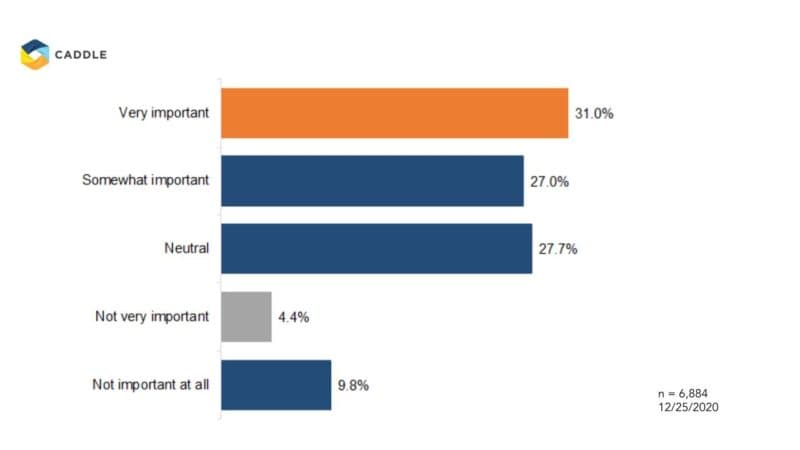
Now that we know there is demand in the vegan beauty industry, what do consumers actually want?
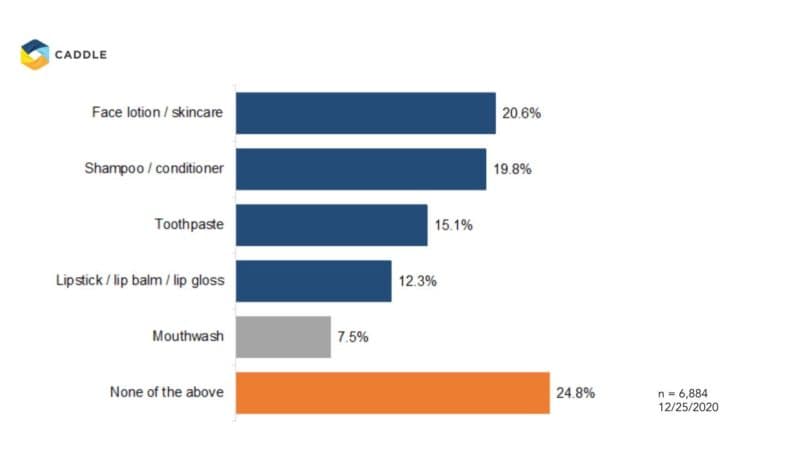
Face lotion/skincare and shampoo/conditioner are tied for first place as the top product categories consumers are likely to purchase that are labelled cruelty-free. So, if product line expansion is on your brand’s horizon, creating products that are in these categories will have the highest adoption rate from consumers looking to veganize their beauty routines.
Key Takeaways
No 1 |
The most important factor when choosing makeup products is quality, followed closely by price and brand, whether it’s cruelty-free or not.
No 2 |
There is demand yet to be captured in the cruelty-free beauty industry, with 58% of consumers who believe having cruelty-free personal care products and cosmetics is “somewhat important/very important”.
No 3 |
Face lotion/skincare and shampoo/conditioner are the top product categories consumers are likely to purchase in the future that is labelled cruelty-free.
*Disclaimer: all data presented is owned by Caddle and has a Margin of Error of 1% or lower.
Get better business insights, faster, with Caddle.
Want more Caddle Insights? Sign up to our email list!

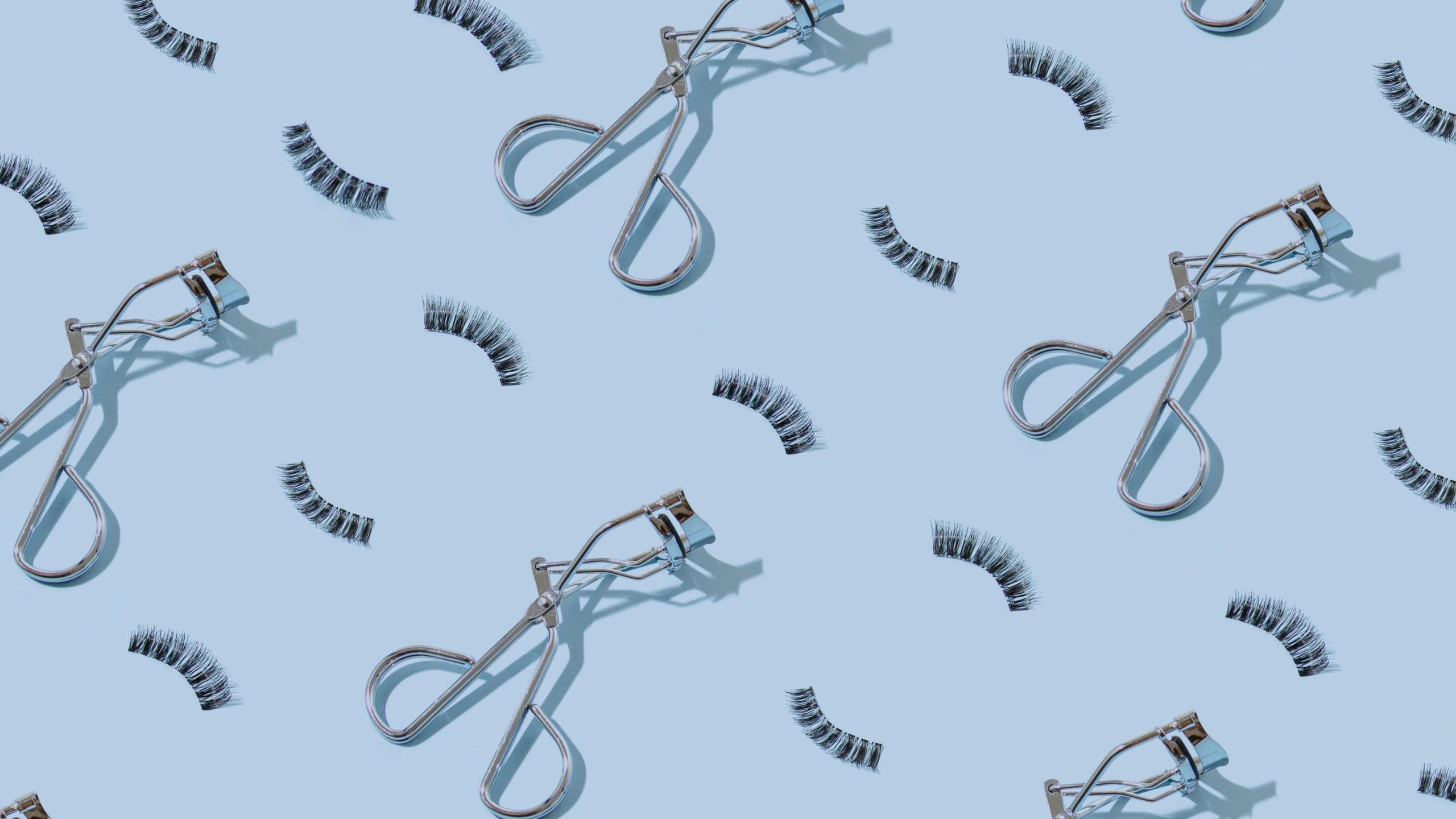

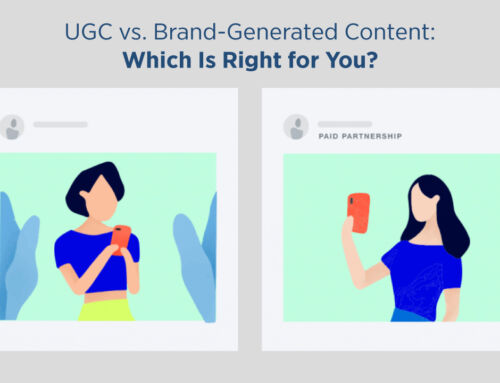

Leave A Comment